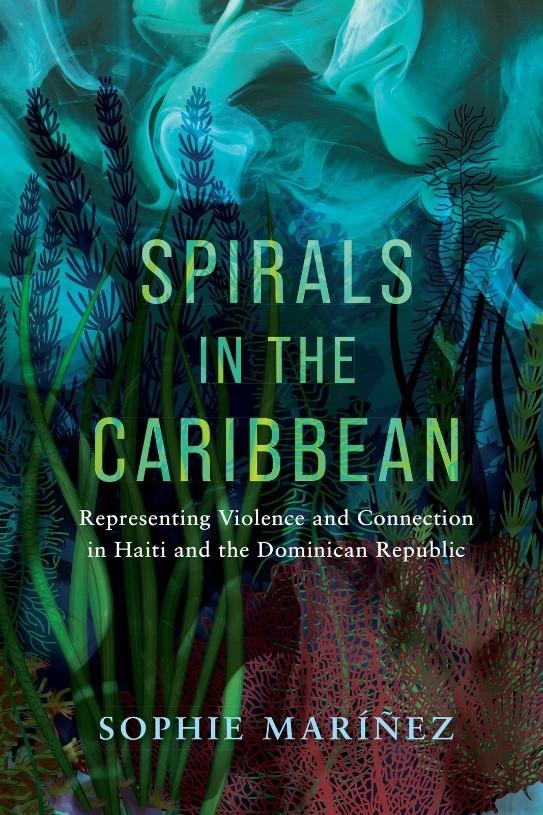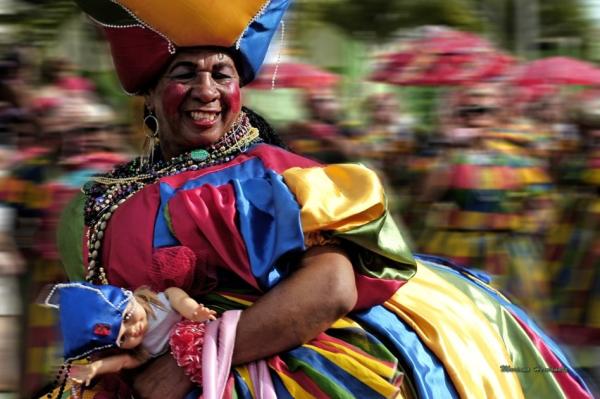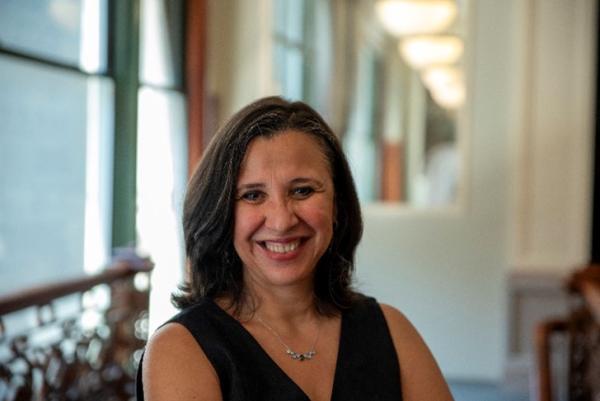Sophie Maríñez: A Scholar, Poet, Translator, and Teacher Strives for Freedom
Tanks roll down the street; stern-faced soldiers march past; the national anthem plays. Nearby, a little girl watches with the rest of the revelers. It is Carnival Day in Santo Domingo, and the girl bears witness to an uncertain future. This scene is where Sophie Maríñez’s poem “Carnival Day in Santo Domingo” begins, showing confusion and fear towards an oppressive power during a supposed celebration. Maríñez is a professor of modern languages, cultures, and literature at the Borough of Manhattan Community College, a Hispanic-Serving Institution (HSI), as well as a poet, scholar, and translator. Born to a French mother and Dominican father and living in New York City for many years, the three cultures and languages “inhabit” her, she said in a recent interview. French, Spanish, and English shape her “thought and sensibility in ways that complement one another” as well as determine her areas of study.
Maríñez’s background led her to focus on the multilingual island shared today by Haiti and the Dominican Republic. In her new book Spirals in the Caribbean: Representing Violence and Connection in Haiti and the Dominican Republic (University of Pennsylvania Press, 2024)—supported by a 2022 Summer Stipends award—Maríñez uses correspondence, oral traditions, collective memories, Afro-Indigenous religion and music, and works of fiction and poetry to examine the history of violence on the Caribbean island. Given the current situation in the region, Maríñez sees these works as speaking to both the past and present moment.
Maríñez also sees a close relationship between her research and teaching “as mutually serving, deeply intertwined activities.” She further elaborated that research helps her—and other teacher/scholars—continue to be excited about their intellectual disciplines and stay up to date with other studies, which ultimately results in “students’ engagement and intellectual growth.” The act of preparing classes changes the way that teachers think about their research subjects, and students often have keen insights that help further advance the thoughts of professors.
The 2022 Summer Stipends award is Maríñez’s second from NEH. (Her first in 2012 supported Mademoiselle de Montpensier, Writings, Châteaux, and Female Self-Construction in Early Modern France (Brill, 2017), an exploration of the writings of a prominent French woman and her architectural patronage.) Rather than thinking about the work needed to prepare a grant application as a chore, Maríñez understands it as an important intellectual exercise that enables her to refine and articulate her arguments and develop realistic timelines. In Maríñez’s eyes, the process also has a social benefit. Sometimes rising at 4 a.m. to begin her writing before classes, she profited from sharing work with trusted colleagues, developing a “network of kindred spirits” who helped her in times of isolation and stress that sometimes come with research and writing. Yet the strain of her exhausting schedule is worth it: Maríñez sees her scholarship as giving voice to those who need it most.
In the second part of her poem, after the military parade ends, true freedom begins with the celebration of Carnival. The oppressed and marginalized people of Santa Domingo dance through the streets, and the little girl joins them. For a brief moment, the little girl and those around her are able to express any emotion they desire. However, this government-given freedom only lasts until Carnival ends; everyone then reverts to their lives. Maríñez wrote this poem in response to the silence she saw from many Dominican intellectuals and artists to the court ruling 168-13 issued by the Constitutional Court of the Dominican Republic in 2013, which stripped thousands of Dominicans of Haitian descent of their citizenship. True freedom to Maríñez is “having the courage to live and act according to our conviction,” where everyone, regardless of “race, class, ethnicity, gender, sexual orientation, religious affiliation, or bodily conditions,” can live as themselves.
Maríñez’s convictions have allowed her to delve into the art of literary translation, especially poetry that conveys ideas of freedom. She has translated the poetry of Julia Alvarez, Jacques Viau Renaud, and Frank Baez, among others, to counter racism and other bigotries by “emphasizing the humanity of both populations.” Julia Alvarez is “one of the rare Dominican writers to write [about Haiti] without the condescension and racist language” seen in other Dominican works. Alvarez’s poem “Two Countries: One Island,” translated into French by Maríñez, condemns the colonial legacies that still haunt the island. Jacques Viau Renaud, a Haitian-Dominican poet who fought against the U.S. occupation of the Dominican Republic in 1965 and was killed by a mortar at age 23, became a hero-poet for both Dominicans and Haitians. Frank Baez’s epic poem “La Marilyn Monroe de Santo Domingo” takes the reader into the world of a transgender woman who recounts a life of constant abuse; after a short stint in New York City where she raises funds for her surgery, she is deported to the Dominican Republic. Maríñez helps push these individuals into the limelight through her translations with the hope that the revelations of these artists might chip away at the intolerance seen in society.
Through her poetry, scholarship, and translations, Sophie Maríñez envisions a freer and fairer society. For her next project, Maríñez is exploring the relationship between France and Latin America in the second half of the twentieth century, with a special focus on the Caribbean.
Sophie Maríñez is a professor of modern languages, cultures, and literature at the Borough of Manhattan Community College, where she recently won a Distinguished Teaching Award. She received an NEH Summer Stipends Award (FT-285725-22) in 2022 to support the writing of Spirals in the Caribbean: Representing Violence and Connection in Haiti and the Dominican Republic (University of Pennsylvania Press, 2024).
The Summer Stipends program supports continuous full-time work on a humanities project for a period of two consecutive months, stimulating new research in the humanities and its publication. For more information on the NEH Summer Stipends program, or to apply, see the program’s resource page. Contact @email with questions.


